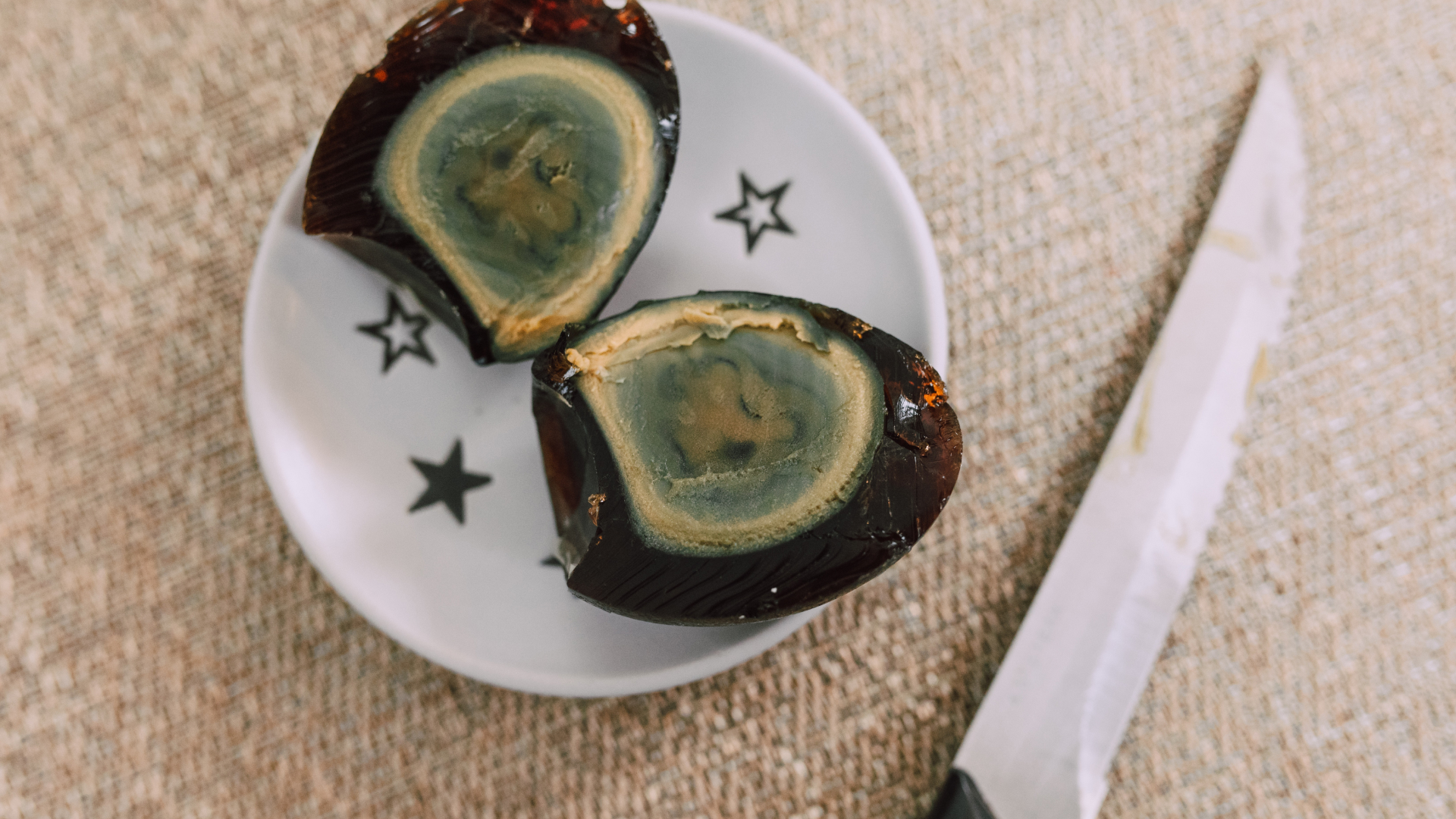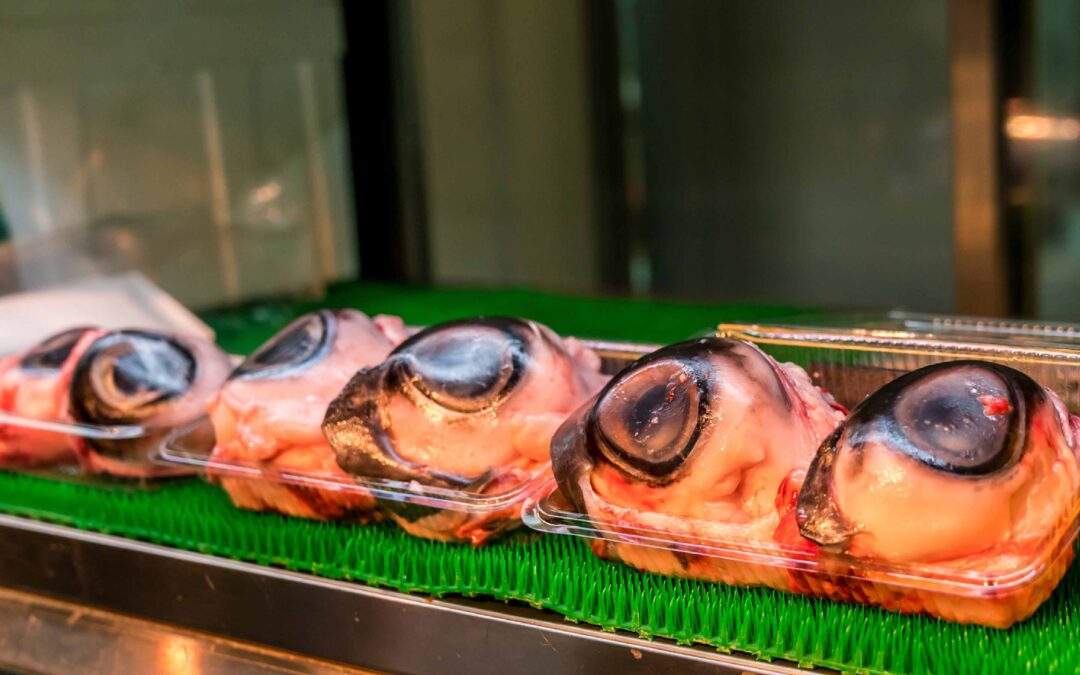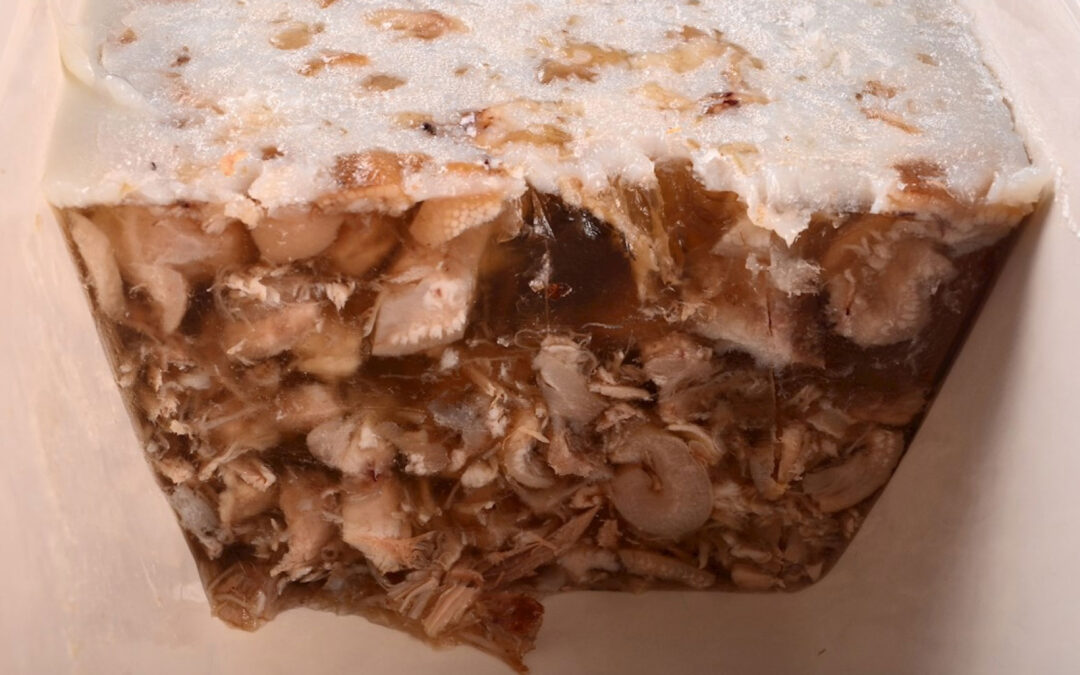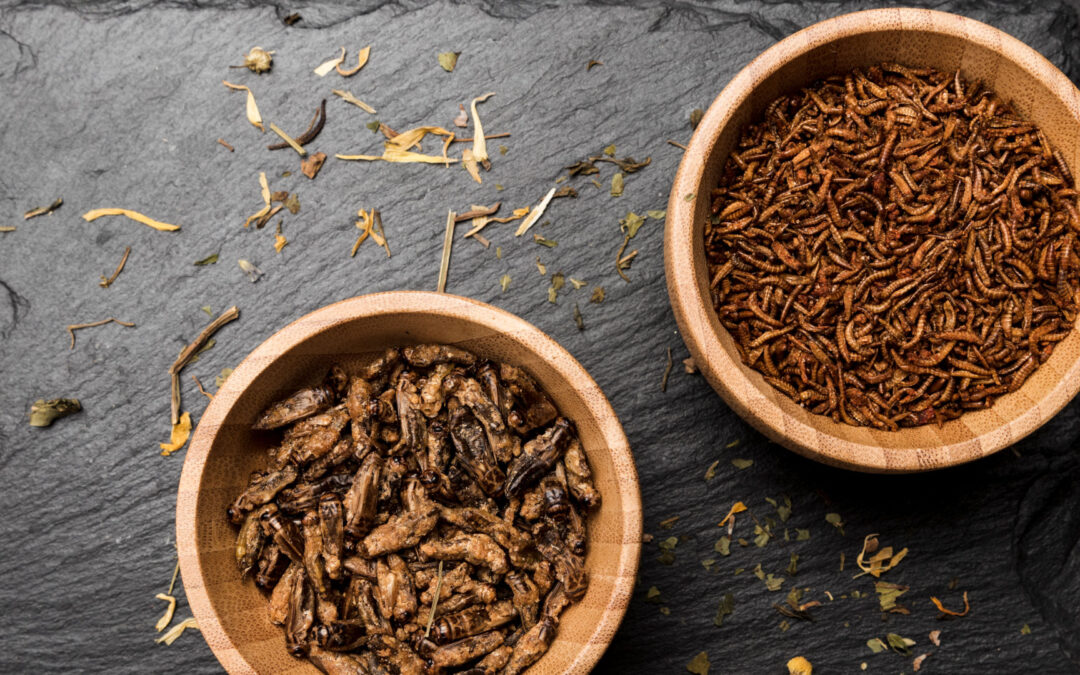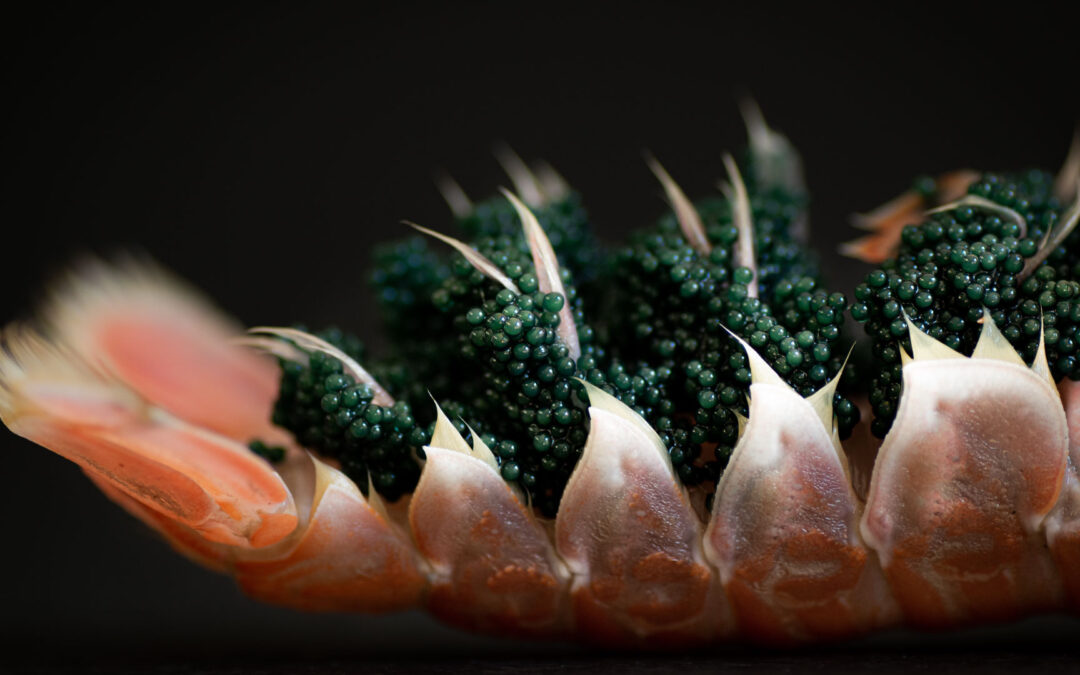The name ‘Century Egg’ creates curiosity in our minds. What actually it is? Is it a combination of hundred eggs? Or is the egg a hundred years old? Well, sadly it is neither one of them. The reasoning behind the name comes from the fact that they are preserved for a long time. Although the preservation takes from a few weeks to a few months, the egg contains other names like thousand-year eggs, thousand-year-old eggs, and millennium eggs that are a little bit exaggerated.
Due to its pattern the name ‘Pine-patterned eggs’ is sometimes referred to in China. People believe that century eggs are prepared by soaking in horse urine though there is no good evidence to support this. In Thai and Lao, people call it ‘Khai Yiano Ma’ which means ‘Horse Urine Egg’. This misconception is avoided sometimes.
Usually, chicken, duck or koel eggs are used to make this Chinese egg-based culinary dish. What! Do people eat this century-old egg as food? Yes, it is one of the popular bizarre foods, especially in China. The eggs are preserved in a mixture of clay, ash, salt, quicklime and rice hulls and are used in making different items.
The yolk of an egg becomes faded in this process like a dark green to grey colour. With the presence of ammonia and hydrogen sulfide, it has a strong flavour and a creamy consistency. The white part of an egg gets dark brown and it starts tasting a bit salty. Gradually, it turns into a transparent jelly. Alkaline salt is the transforming agent of it. During the curing process, the pH gradually raises to around 9 to 12. An unpleasant odour is created for this, which indicates that the taste must be very bad. The taste, however, is unexpectedly very creamy, velvety and succulent as well. In China, eggs are enjoyed in various ways. Eggs are eaten throughout the day – with breakfast, for dinner or as a snack or appetizer. It is served as a main dish as well as a side dish. It is enjoyed with pork, ginger, tofu, wine, champagne etc. The eggs are also baked into pastries to make a new taste.
The history behind this dish is quite interesting. According to legend, a resident of the Hunan province supposedly discovered duck eggs left in a pool or slaked lime and decided to try them. Though its discovery is undocumented estimates by scientists date it back more than 500 years to Ming Dynasty. The preservation process, however, remains relatively the same to this date with some changes for large-scale production.
Century eggs prepared in traditional ways are generally safe to consume. However, there have been incidents of malpractice, which caused contamination. This type of evil practice is harmful to the popularity of this food. Though it is not popular all over the world, it is consumed in a good number in China and nearby countries. People who consume this uncommon dish as an ‘Acquired Taste’ hope that one day everyone will gain that.

